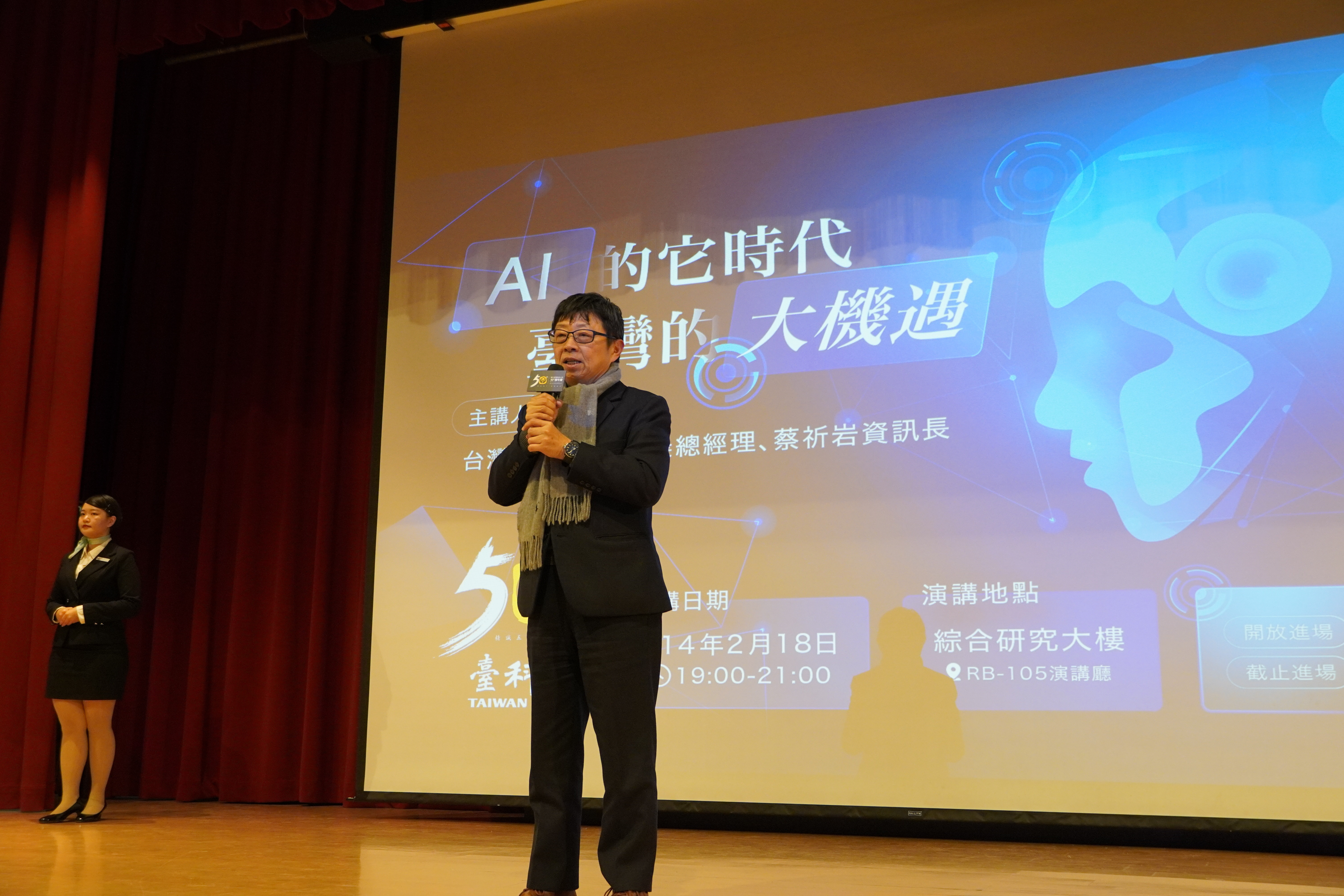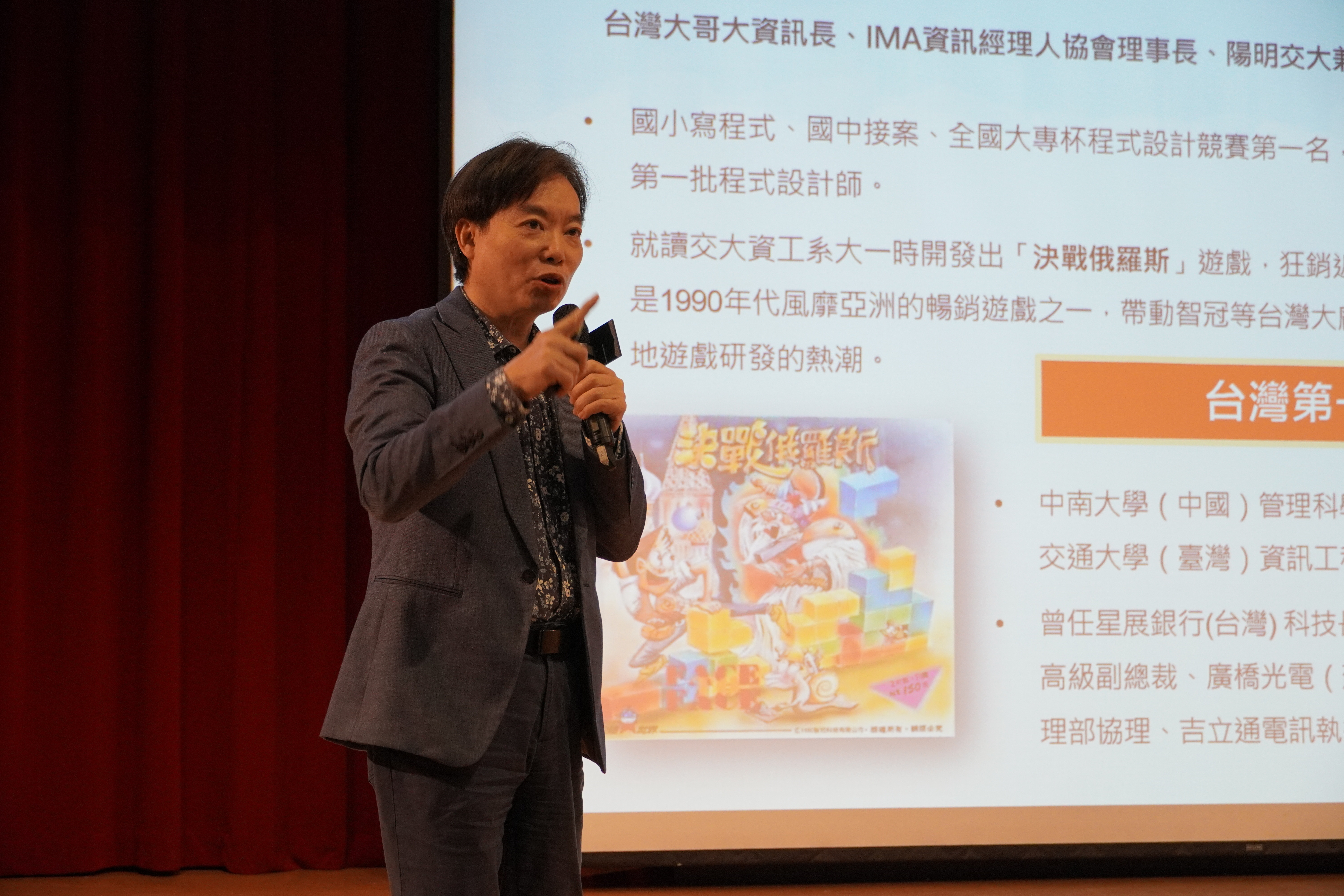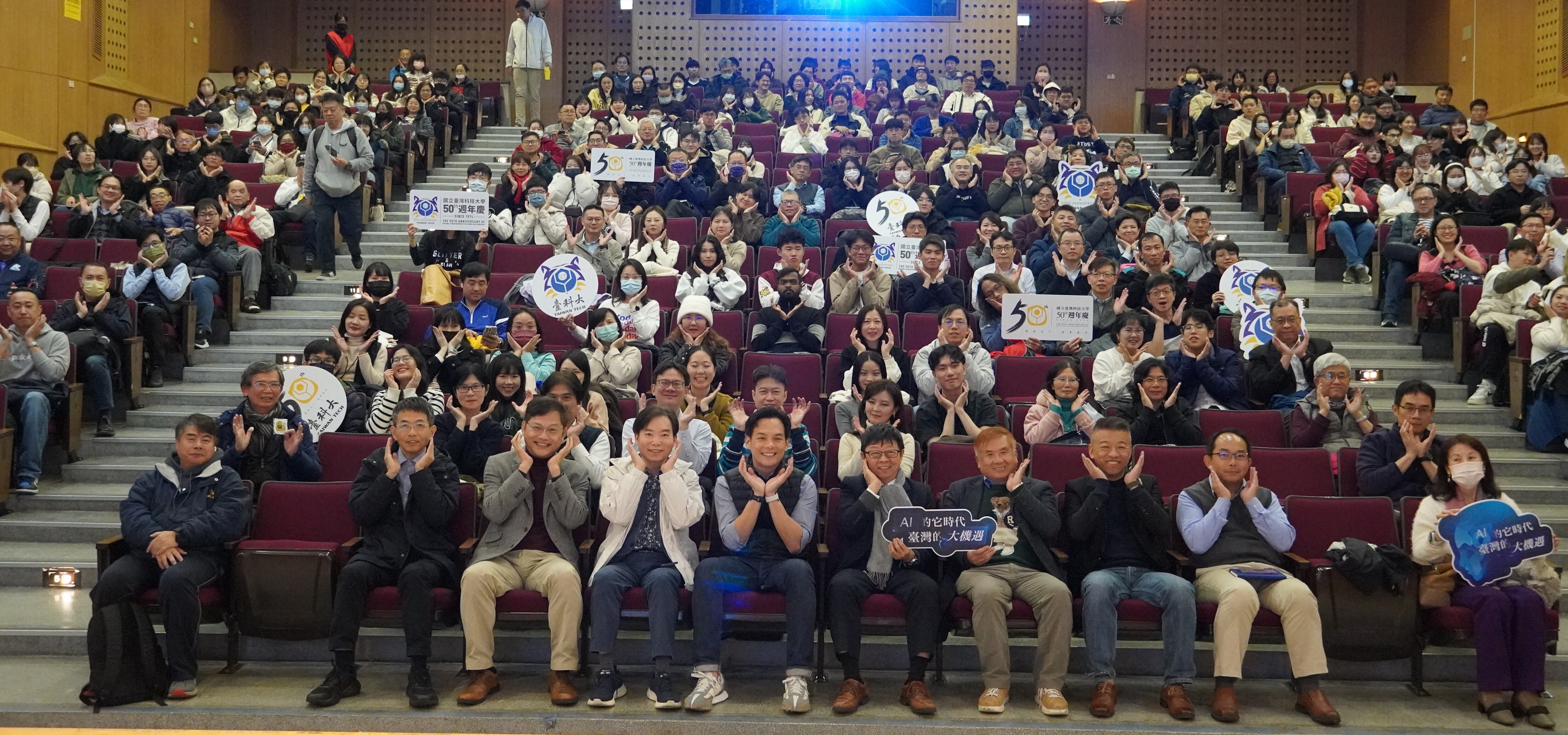Taiwan Tech invites Jamie Lin to speak on how AI will reshape economic models.
Taiwan Tech held “The AI Era – Taiwan's Big Opportunity” Lecture on February 18, inviting President of Taiwan mobile, Jamie Lin, and Chief Information Officer, Chi-Yan Tsai, to share insights on AI applications and future development. Both speakers believe that AI will replace some jobs but will also create new ones.

Taiwan Tech held the "The AI Era – Taiwan's Big Opportunity" lecture. From left to right: host, Taiwan Tech Distinguished Professor Hsi-Peng Lu, president of Taiwan mobile, Jamie Lin, and Taiwan Mobile Chief Information Officer Chi-Yan Tsai.
Taiwan Tech President, Jia-Yush Yen, in his speech, stated that AI has profoundly impacted technology, healthcare, and daily life, effectively enhancing work efficiency, reducing costs, and assisting decision-making through big data analysis.

Taiwan Tech President, Jia-Yush Yen, delivered a speech.
Jamie Lin pointed out that the technological automation of the past four generations did not increase unemployment rates but rather created more new jobs. He gave examples: “After the automation of agriculture, the farming population dropped to 2-3%, leading to the rise of the food processing industry; textile automation reduced fabric costs, driving the clothing industry. AI will be similar - it will eliminate some jobs, but it will also create new markets.”

Jamie Lin pointed out that AI will eliminate some jobs, but it will also create new markets.
Chi-Yan Tsai pointed out that AI will disrupt the daily tasks of white-collar workers, particularly in administrative, data analysis, and basic decision-making roles that require repetitive operations. He emphasized, “Human demand for automation is endless; AI is just the next tool to enhance productivity, not the end of work”. Additionally, “AI agents” will change business models, where consumers may no longer search, compare, or purchase tickets themselves, but will delegate these decisions to AI. He noted that previously, businesses paid for advertising to gain exposure, but in the future, they may pay AI “commission fees” to influence consumer decisions.
Regarding the “2045 Golden Cross” when AI intelligence may surpass human capabilities, Chi-Yan Tsai believes that AI only has intellect, not self-awareness, and that ethics and values will still be determined by human society. The key to AI’s future development lies in “how to align AI with societal values to ensure that AI decisions adhere to social ethics.”

Chi-Yan Tsai believes that “AI agents” will change business models.
In the face of the rise of AI, how should students and businesses adjust? Jamie Lin emphasized the importance of finding a field they are passionate about and deeply exploring the boundaries of knowledge, without being limited by the education system. Chi-Yan Tsai stressed, “The world outside is vast, and English-language resources are comprehensive. Use online resources to improve English skills and connect with the outside world.”
Regarding Taiwan's industrial opportunities, Chi-Yan Tsai mentioned that short-term growth drivers include the telecommunications industry, smart manufacturing, and specialized AI fields such as healthcare and PCB design. He stated, “Change is inevitable, victimhood is optional.” Jamie Lin highlighted, “The period from 2020 to 2040 is the golden age of AI, and now is the best time. The next decade will be the most explosive moment for AI.”

Taiwan Tech held the “The AI Era – Taiwan's Big Opportunity” lecture, followed by a group photo.